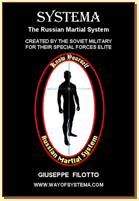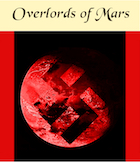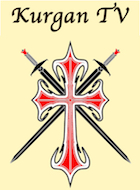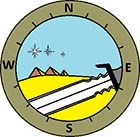Someone helpfully posted Vox’ list.
Since I consider myself to be literate, by definition any book that I have not read cannot be necessary for literacy. That knocks out more than a few books commonly listed, such as Portrait of the Author as a Young Man. (And while I have read Ulysses, it is by no means necessary.)
I should also note that I left out the OC’s spotting of a religious tome, because whereas the Bible is necessary to be considered literate, the Bhagavad Gita and the Koran are not. Most literate people have read neither. Anyhow, without further ado, here’s my list of 25 books which I believe is absolutely necessary to have read in order to be considered literate.
The IliadThe Odyssey
The Decline and Fall of the Roman EmpirePlato’s Republic
The Annals
The DecameronThe Complete Works of William Shakespeare
Candide
A Christmas Carol
Anna Karenina
Don Quixote
The Three Musketeers
The Complete Works of Edgar Allen Poe
Crime and Punishment
Brideshead Revisited
1984
The Name of the Rose
The Glass Bead GameThe Adventures of Tom SawyerThe Hound of the Baskervilles
The Lord of the Rings
The Chronicles of Narnia20,000 Leagues Under the SeaFoundation
The Code of the Woosters
There’s a few books you may not have read that aren’t absolutely necessary to be considered literate, but I’ll nevertheless look at you somewhat askance if you haven’t: The Tale of Genji, The Dark is Rising, Watership Down, The Meditations of Marcus Aurelius, The Divine Comedy, Madame Bovary, a collection of short stories by Guy de Maupassant, a Poirot novel.
I have struck through the ones I have read on his list.
I will also substitute for a Poirot novel several I read by Agatha Christie, though I don’t recall all their names.
My list is different, but then I don’t necessarily consider myself “literate” in the classical sense. Instead, I consider myself well-read, and well-rounded, with an emphasis on being generally well-versed in understanding the reality of the world as we find it, with some relatively good insight into some of the fundamentals of it (Physics, Astronomy, some Chemistry, Engineering and Human history). So my list is leaning more in that direction than pure literacy for the sake of the prose. I would add that I think it is a far larger endeavour to be well-rounded, as I intend it, rather than merely literate, so I’m giving myself 30 books instead of 25.
The Crusades – Iron Men and Saints
The Basic Laws of Human Stupidity
Black Holes and Time Warps: Einstein’s Outrageous Legacy (various Astronomy books throughout my life, but this probably encompasses a lot of the concepts)
Physics without Einstein (again, various books, but the ones by Harold Aspden are most interesting and this one probably best represents them)
The Dictionary of word origins
The Pio-Benedictine Code of Canon Law of 1917
Go Rin No Sho (A book of five rings)
The Face on Mars (it may be seen as vain, as I wrote it, but honestly I wrote it because I think it is really quite important for people to know the very origin of the Human race is far more interesting and unexpected than anyone imagines, and the evidence for it is overwhelming)
The Hoax of the Twentieth Century (good luck finding a copy without needing to act like some spy trying to purchase hidden plans to the enemy’s mind-control machine)
A New Science of Life (and The Science Delusion which is really part II)
The Spear of Destiny – Ravenscroft was a POW in WW2 and after he wrote this the “official” historians attacked him as a “fantasist”. Given the almost total fabrication in many respects of those same “historians” I am far more inclined to take Ravenscroft version of events as being closer to accurate. More importantly, it was the first book (after decades of reading up on the Nazis because the entire country suddenly becoming evil never made sense to me) that gave me a hint of some of the other forces involved in the Nazi regime, including the occult side of it.
Soldier of the Mist (It’s a trilogy but I really liked the first book the most and you can’t find it on its own easily now)
The Lord of the Rings (You kinda need the Hobbit thrown in there as well, and possibly The Silmarillion)
The Greek Myths (there were many books on this topic as a child, but this although technical, covers most of them is in summary form, but cross-referenced)
La Divina Commedia (reading it in English is a minor capital crime)
The Complete works of Shakespeare
The SS Brotherhood of the Bell: NASA’s Nazis, JFK and Majic-12
Dark Star: The Hidden History of German Secret Bases, Flying Disks, and U-Boats
Also… if you have not read through a dictionary or two I will tend to also look you askance, and if you think the Earth is flat I will consider you an abject moron.
So that’s my list of books you need (at a minimum) to begin to be considered a generally well-read man.









Is The Hoax of the Twentieth Century by A.R Butz? The link is funky.
I think so, it’s the only one with that title, my copy is not directly at hand, but any description of it will let you know. The link is to the internet archive. Which I hear may have suffered some
intentional deletionaccidental scrubbing bythe usual suspects,mysterious events.Hi, sorry to bother again, but,
Gilgamesh
The Spear of Destiny
The Conquistadors
There links are to solider of the mist. I know I could look it up but I want to make sure I get the right version.
Thanks. My PC is a little retarded, and probably so am I. Will fix now.